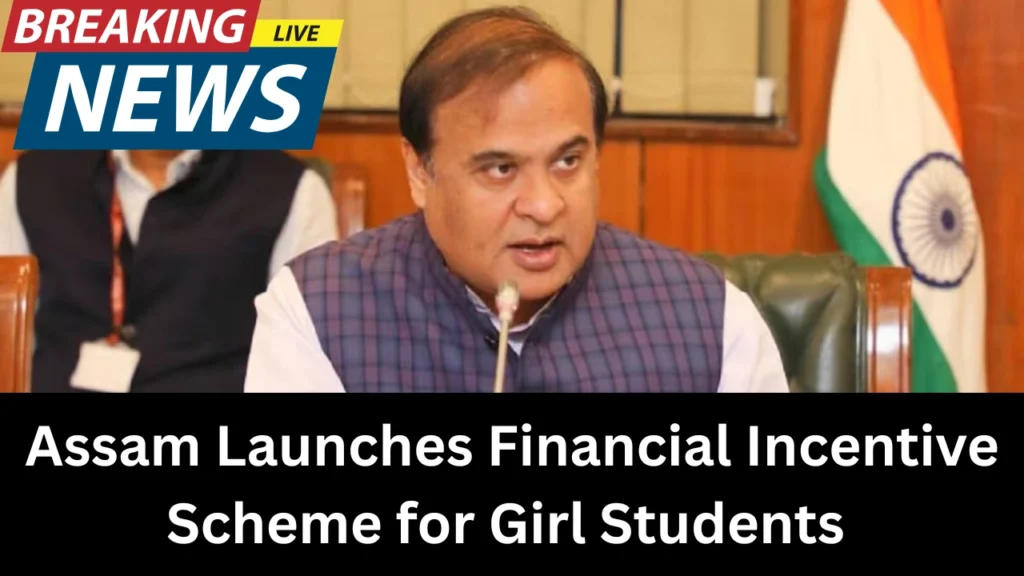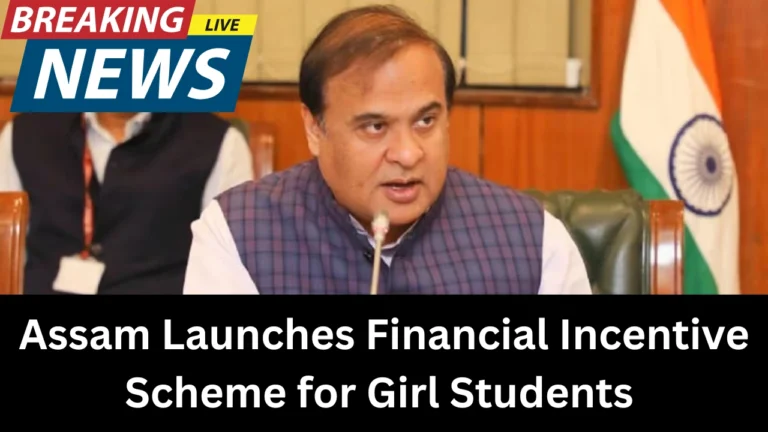In a landmark move to empower girls and fight the entrenched social evil of child marriage, the Assam government, under the leadership of Chief Minister Himanta Biswa Sarma, has rolled out a transformative financial incentive program titled “Nijut Moina” (translated as One Million Daughters). The scheme aims to support the higher education of girl students and incentivize them to delay marriage, thereby promoting education and empowerment over early union.

Announced on Sunday, the Nijut Moina scheme is being projected as a major step forward in Assam’s fight against child marriage, a persistent issue in several rural and semi-urban regions of the state.
We are shortly going to launch Assam's most comprehensive policy to fight against child marriage – the Nijut Moina Asoni.
— Himanta Biswa Sarma (@himantabiswa) August 8, 2024
Watch this video to know details about the scheme, its benefits and eligibility criteria ~ pic.twitter.com/k1JcrIXRKw
Objective: Eradicate Child Marriage through Education
The primary objective of the Nijut Moina scheme is to bring down the number of child marriages in Assam by ensuring that girls stay in school and college for longer. The scheme directly links educational support with a condition of staying unmarried, thus tackling two major social challenges at once—low female literacy and early marriage.
“We anticipate that the Nijut Moina scheme will help eradicate child marriage from the state,” said CM Himanta Biswa Sarma while addressing the launch event.
Financial Assistance to Over 10 Lakh Girls
The Assam government has committed an initial outlay of ₹1,500 crore, with a plan to cover over 10 lakh girl students across the state. In the first year alone, more than 1.6 lakh girls will benefit from the program, receiving a combined financial assistance of ₹240 crore.
CM Sarma noted that by financially supporting girls during their graduation and post-graduation studies, the government is aiming to reduce their dependency on parents for continuing higher education.
Who Is Eligible and What Are the Benefits?
The Nijut Moina scheme offers tiered monthly scholarships to female students at different stages of higher education:
- Class 11 Students: ₹1,000 per month for 10 months (₹10,000 annually)
- Undergraduate Students (1st Year): ₹1,250 per month for 10 months (₹12,500 annually)
- Postgraduate Students (1st Year): ₹2,500 per month for 10 months (₹25,000 annually)
This structure ensures that as a girl progresses in her education, her financial incentive also increases, motivating families to invest in their daughters’ academic journeys.
Conditions of the Scheme
To ensure the scheme achieves its intended goals, the government has laid down specific eligibility conditions:
- Mandatory Unmarried Status Until Graduation:
Girls must remain unmarried till the completion of their undergraduate degree to qualify for benefits under the scheme. Once they reach post-graduation level, there is no restriction, as they would have crossed the legal minimum age of marriage (18 years). - Exclusion for Children of Politicians:
The daughters of Ministers, MLAs, and MPs will not be eligible for benefits under the Nijut Moina scheme. This clause ensures that the benefits are directed toward economically and socially vulnerable sections. - Regular Attendance and Performance:
Beneficiaries must maintain regular attendance in college and show satisfactory academic performance to continue receiving the financial support.
What CM Sarma Said on Social Media
Taking to X (formerly Twitter), CM Himanta Biswa Sarma called Nijut Moina a “game changer” in the fight against child marriage:
“I believe this initiative will be a game changer to fight child marriage. #NijutMoina is unique as it incentivises positive social outcomes, funds higher education, reduces family expenses, and bars child marriage by encouraging girls to remain in college.”
He further highlighted that previous efforts to tackle child marriage in Assam had already begun to show positive impacts on maternal and infant mortality rates, and this initiative would be the “final nail in the coffin” for the social evil.
Past Crackdowns and Data Backing the Move
Assam had previously launched state-wide crackdowns on child marriage, arresting hundreds of individuals involved in underage weddings. Studies have shown a correlation between higher education levels in women and lower rates of early marriage and maternal mortality.
With Nijut Moina, the government is now moving from punitive actions to preventive support, tackling the root causes such as economic hardship, lack of education, and cultural norms.
Why This Initiative Matters
Assam ranks among the Indian states with higher incidences of child marriage, particularly in rural and socio-economically backward areas. Many girls are forced to leave school due to financial constraints or early marriages, cutting short their aspirations.
By offering financial independence, incentivizing continued education, and penalizing early marriage (by withholding the scholarship), the Nijut Moina scheme sends a strong message: Educating girls is a priority, not a burden.
This also aligns with broader national goals such as:
- Beti Bachao, Beti Padhao (Save the girl child, Educate the girl child)
- National Education Policy 2020
- United Nations Sustainable Development Goal 5 (Gender Equality)
Challenges Ahead
While the scheme has received wide praise, experts have pointed out that its success will depend on:
- Effective implementation at the grassroots level
- Awareness campaigns to ensure families understand the eligibility rules
- Monitoring mechanisms to prevent misuse
- Infrastructure support like transportation and hostel facilities for girls in rural areas
However, if implemented well, Nijut Moina could become a model policy for other states, especially those battling child marriage and low female literacy.
Conclusion
The Nijut Moina scheme is more than just a scholarship—it is a social intervention aimed at reshaping Assam’s future. By empowering over a million girls with education and financial independence, the state government is making a historic investment in human capital and gender equality.
With clear targets, defined conditions, and a bold vision, Assam has taken a decisive step forward in curbing child marriage, not just with the force of law, but with the power of education, empowerment, and economic support.

